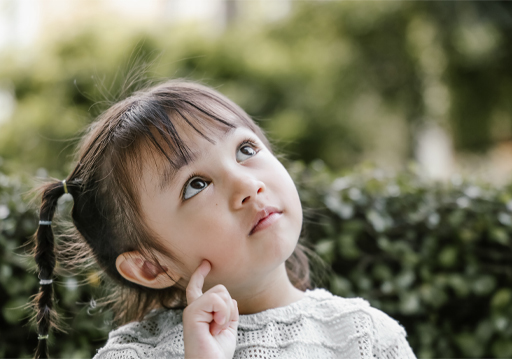Session 8: Moving forwards and answering the big questions
Introduction
Do you remember back in Session 1 you began this course by thinking about your responses to certain questions about your own engagement with the outdoors and nature as a young child? As you arrive at the final session of this course, you are again going to think about questions. Young children are wonderful at asking questions aren’t they? Even before they are forming full sentences they will point and ask, ‘What’s that?’ before moving on to those really difficult questions that you just don’t know how to begin to answer.
In this eighth and final session of the course, questions will be explored for you to ponder so that you can make decisions in the way you choose to move forward. You will also be invited to ask questions of your own. No doubt, you will be aware of the substantial amount of knowledge you have gained up to this point regarding babies and toddlers and their engagement with the outdoors and nature.
You may like to look back at the notes you have made in your Learning journal and reflect on all you have learned, thinking about the big ideas that really stand out for you. Hopefully though you still have questions and can see this as a positive; a questioning approach is a really helpful one to adopt in terms of moving forward. In this session, you may find some answers to those questions yet at the same time, you will be encouraged to think about even more questions that could, and perhaps should, be asked.
By the end of this session, you should be able to:
- identify further questions that need to be asked concerning young children’s engagement with the outdoors and nature
- describe ways that settings can review their practice
- identify key sources of support for practitioners who wish to lead on this practice.
Before you begin, listen to this audio of Joanne Josephidou, the session author, introducing the session.
Transcript
JOANNE JOSEPHIDOU: And so we come to the eighth and final session of this course. At this point, you may find you have many, many questions.
Questions, of course, form the basis of research. You must know what you want to find out before you decide how you're going to proceed.
We mentioned right at the beginning of this course that it is informed by a piece of research we carried out, which was funded by the Froebel Trust. And this continual development of questions is exactly what we have experienced in our research into babies and toddlers engagement with the outdoors and nature.
As soon as we answered one research question, many others arose. We began by asking, what can published research tell us about this engagement? Which led on to the question, why are babies missing? This made us ask, what is happening in practice? And when we answered that question, we went on to wonder about pedagogies that not only allowed very young children to connect with nature, but that also supported children in developing an understanding of their responsibility towards nature. We still have many questions at this point, and hope that you do too.
So questions are a focus of this session. We are encouraging you to think about the questions you should be asking. We have included some reflective models to help you to do this. And there are also video clips of Professor Jan White, professor of practice with the University of Wales Trinity St. David and director of Early Childhood Outdoors. These videos will help you as you consider how to move forwards and what are the big questions we should be asking.

